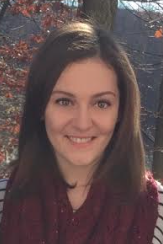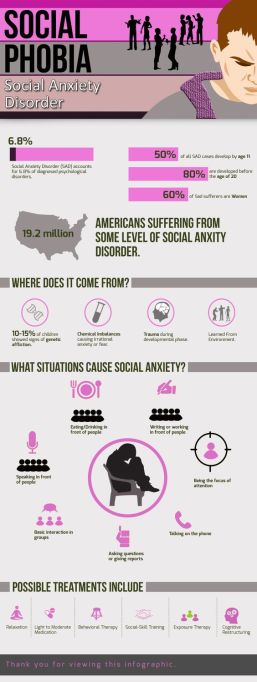 My name is Kelly Kyriacou, I am 21 years old and currently a senior undergraduate student at Siena College in Loudonville, New York. I will be graduating this May with a Bachelor’s of Arts degree in Psychology and plan to attend Iona College next year to earn my Masters in Clinical Mental Health Counseling. My main interests outside the classroom are reading, creative writing, listening to music, and attending concerts.
My name is Kelly Kyriacou, I am 21 years old and currently a senior undergraduate student at Siena College in Loudonville, New York. I will be graduating this May with a Bachelor’s of Arts degree in Psychology and plan to attend Iona College next year to earn my Masters in Clinical Mental Health Counseling. My main interests outside the classroom are reading, creative writing, listening to music, and attending concerts.
I was born in New York City on August 9th 1995 and grew up in Westchester County, New York, where I still live with my parents, my older sister Janine, and my younger brother Nick. We are considered to be a larger than average size family for the region according to the 2016 US average of 3.14 members per household. I am the middle child of the family. There are a plethora of myths about the so-called middle child syndrome; primarily that we are moody and more rebellious than our siblings due to a lack of attention from our parents. Another notion I have uncovered in my research is that middle children supposedly display a tendency of avoiding conflict and attempt to diffuse situations involving a high degree of tension.

city trip with my brother and sister
In my experience, I find this statement to be mostly true. Growing up, I found myself usually taking on the role of mediator between my brother and sister—and sometimes even between my siblings and my parents. I have always been very introspective and engaged in listening and observation more than impulsively speaking or taking action. I feel that this has enabled me to enhance my ability to create an atmosphere in which people have felt comfortable enough to express their feelings and opinions, as well as being able to assess the severity of stressful situations and resolving conflicts. It is with these characteristics that I feel most confident in pursuing a career in counseling.
Another widely perceived “symptom” of being a middle child is a lack of high self-esteem and a tendency towards introversion. For as long as I can remember, I have always gravitated toward smaller groups and am usually shy and reserved in social situations, especially with people I am meeting for the first time. This reticence to socialize and tendency to be seen and not heard in a large group originates from a mild case of social anxiety. Anxiety disorders are the most commonly diagnosed mental illnesses in the United States, affecting roughly 40 million adults aged 18 and older. Specifically, Social Anxiety Disorder affects approximately 15 million Americans or 6.8% of the population, and is equally common among men and women. It is typically diagnosed during adolescence. I believe this places me in a subgroup of identified deviant behavior, as anxiety affects how individuals view and interact with their peers and the world around them. For example, I often feel my stomach twisting into knots or my heart beginning to race if an unfamiliar number calls my phone or I am required to network and speak to a large group of people. I also am constantly worried that I may appear cold or stuck-up to others because I do not always say “hi” or greet people that I recognize when walking by, or attempt to initiate most conversations. Socializing can feel like such a chore when you overanalyze every word you say and wonder if it came across the way you had intended. “Deviance is not a quality that lies in behavior itself, but in the interaction between the person who commits an act and those who respond to it” (14). My biggest fear is making a fool of myself in front of others because I said something that came off as dumb, or having someone think I do not like them because I did not smile or wave when I saw them in the dining hall.
required to network and speak to a large group of people. I also am constantly worried that I may appear cold or stuck-up to others because I do not always say “hi” or greet people that I recognize when walking by, or attempt to initiate most conversations. Socializing can feel like such a chore when you overanalyze every word you say and wonder if it came across the way you had intended. “Deviance is not a quality that lies in behavior itself, but in the interaction between the person who commits an act and those who respond to it” (14). My biggest fear is making a fool of myself in front of others because I said something that came off as dumb, or having someone think I do not like them because I did not smile or wave when I saw them in the dining hall.
Becker tells us that the notion of deviance comes from the communal norms within our society. It is a “consequence of the responses of others to a person’s act” (9). Our culture deems people who are reserved and quiet as deviants, making it seem as though extroversion is the norm when in fact, a third to a half of the population is made up of individuals who are classified as introverts. Being a college student on a fairly small campus, it is not uncommon to run into people you know from class, friendly acquaintances, and those who are part of your group of immediate friends. I often see people greet each other in passing or meeting throughout the day to work on a project or grab a quick meal together. While I do enjoy meeting with friends during the day, as an introvert I also enjoy my time alone to get work done and simply recharge.
Becker states, “The individual who has committed the impropriety may himself act as an enforcer. He may brand himself as deviant because of what he has done and punish himself in one way or another for his behavior” (31). I used to feel anxious about sitting alone in the dining hall because I worried that it made me look lonely and as though I had no friends. I thought of myself as an outsider and worried that others would view me the same way, which only worsened my anxiety and, for a time, forced me to skip meals or eat in my dorm room. This pressure to fit in was placed on me, by me, due to the social rules that have been ingrained in my mind by the traditional expectations of supposedly normal relationships. The actual ratio, however, based on the first official random sample by the Myers-Briggs organization in 1998 showed that introverts make up 50.7% and extroverts 49.3% of the United States. Therefore, it is important for people to understand that people with anxiety and a predisposition towards introversion tend to label themselves as the culprit for deviant behavior, when in reality this behavior is more common than we realize.
References
Becker, H. (1963). Outsiders Studies in the Sociology of Deviance. New York, NY: The Free Press.
Hi Kelly,
We have been in many classes together since freshman year stated and I can completely relate to you on some of the anxiety things. I too am also fairly introverted and fear I will come off as not liking people because I don’t interact with them the others do in passing. I can reassure you that you never give the impression of being stuck-up when I have seen you around campus. I find is interesting that introverts make up a large percent of the population but are seen as a deviant group. This just shows that deviance is based on the person’s perspective. Also it is interesting that introverts see themselves as deviant even though we are the majority not the minority. I like how you explained your family dynamic and used to myths on middle children to move into talking about introversion and then anxiety. Thank you for sharing such personal feelings and information.
LikeLiked by 1 person
Hi Kelly!
I think it is interesting that you talk about social anxiety and introversion as being viewed by society as deviant qualities due to the fact that the majority of people view these qualities to be uncommon or different from the norm, when in reality these are very common things, which the statistics show. That’s why I tend to agree with one of the definitions that Becker provides in “Outsiders,” which you quoted, that deviant behavior results from society’s reaction to that behavior, not necessarily the behavior in and of itself. In this way. deviant behavior seems to be a social construct. When we realize this, our attitudes towards behaviors we are unfamiliar with might change drastically, and lead us to become more open minded in general.
LikeLiked by 1 person
Hi my name is Fatima Purvis, I am a senior psychology major. I enjoyed reading your writing. I literally was having this conversation with my closest friend because she is the middle child and feels that she is also the target in her family. She also has anxiety in social gatherings especially when there are too many people in her room. I was very surprised by the statistics on how much of the population is introverts and extroverts. I wonder if being a psychology major has helped you to learn and create coping strategies whenever you feel anxiety. I am also a introvert and I think that it is more beneficial than people think.
LikeLiked by 1 person
Hi Kelly,
My name is Aly Feye and I really enjoyed reading your post. While I can’t relate to being a middle child (I am the oldest of two), I definitely relate to being an introvert. I agree with you that sometimes social interactions can feel like a chore and at times even be exhausting, especially forced small talk. I really enjoy being by myself and I think sometimes this makes people think I’m antisocial. I definitely enjoy social gatherings but like most introverts, I need time to recharge by myself. I agree with you that sometimes I feel weird doing things such as eating by myself, but I’ve come to realize that it’s actually a blessing being so comfortable on my own. A lot of people wouldn’t feel comfortable doing a lot of things by themselves and actually need someone to go with them to do things such as eat or go to the mall. While it might seem deviant to others, I think being comfortable with being alone is a strength.
LikeLiked by 1 person
HI Kelly, my name is Jaime Marchetti and I am also a senior psych major. I think your story is very well told and I understand what it is like to be a middle child very well. I have always struggled with low-self esteem, but my way of dealing with it was actually by acting out. I have always been extremely loud and,as my mother puts it, needs to be the center of attention. I had convinced myself that if I was loud enough and had enough friends, my self-esteem would go up. Unfortunately it took me many years to learn otherwise. However, what you are writing about reminds me of the struggles my little sister had. She also has been diagnosed with an anxiety disorder, along with ADHD and depression, and I have often been her rock in many situations where her anxiety has acted up. My sister and I understand each other on a very different level and I know the difference between when she is simply in a bad mood, or when she is hiding or acting out because of her anxiety. She has always struggled with self esteem and often chose to eliminate being in any social situations instead of dealing with the anxiety that comes with it. She has grown a lot however and is slowly but surely gaining the confidence she needs and hearing stories like yours help many others like you so thank you.
LikeLiked by 1 person